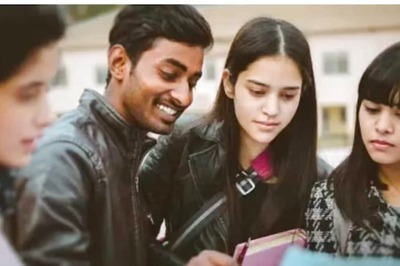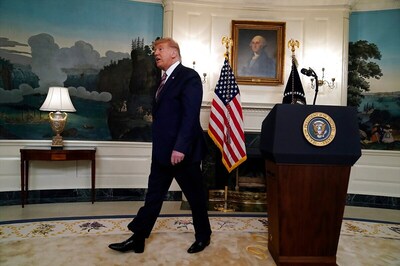
views
Retired Pakistan cricketer Abdul Razzaq dragged Bollywood superstar and former Miss World Aishwarya Rai Bachchan into a discussion on Pakistan’s ignominious exit from the ongoing Cricket World Cup in India.
Questioning the Pakistan team’s lack of intent, Razzaq shockingly remarked, “Younis Khan had good intentions as a captain, and it gave me confidence to perform better. Everyone over here is talking about the intention and Pakistan’s team. Actually, we don’t have good intentions to develop and polish players in Pakistan. If you think that by marrying Aishwarya Rai, a good and pious kid would be born, it will never happen.”
Razzaq’s reprehensible analogy was lustily cheered on by fellow veteran cricketers Umar Gul and Shahid Afridi.
They weren’t alone, thousands of others on social media in Pakistan found the reprehensible analogy acceptable.
The reflexive vocalisation of sexism – the presumption that women are the root of all moral desiccation – is an abhorrent trope. That Pakistan’s cricketers – one would expect them to be progressive on account of being well-travelled – are still yoked to such a misogynistic outlook is a telling comment on the social standing of Pakistani women.
But the focus on sexism obscures the other alarming trend – the normalisation of bigotry that is powering Pakistan society’s rapid descent into exclusivist Islamism.
Aishwarya Rai Bachchan is an object of disdain for Razzaq because she is not Muslim. Remember he distastefully laments that marrying Rai would not beget “pious kids”.
That many in Pakistan regarded Razzaq’s serious analysis as a joke ought to tell us that the genie of Islamism is now well and truly out of the bottle.
For quite a while, ordinary Pakistanis would reassure sceptics that “fundus” or fundamentalists would never be able to mainstream their poison. That in election after election these parties were overlooked by the ordinary Pakistani.
But that has changed. In 2018, when Imran Khan won the general election to become Prime Minister, his government was propped by Islamic parties that had cornered 9% of the votes. In other words, one in nearly every ten Pakistanis opted to vote for an Islamic party.
The statistics of course don’t reveal the full story. The Pakistani state allowed terrorist organisations like the Jamaat-ud-Dawa (JUD), the front for the Lashkar-e-Taiba (LeT), to set up a political party called the Milli Muslim League (MML).
Even though it was not registered, its candidates were able to contest the elections on the platform of another party – the Allah-o-Akbar Tehreek (AAT).
Worse, terror suspects listed on the Fourth Schedule of the Anti-Terrorism Act (ATA) were given free passage by the Election Commission of Pakistan (ECP) to contest the elections.
Many of these candidates are today part of Pakistan’s formal governance structures.
They are at the vanguard of a worrying capture of the state by Islamists through democratic means. Parallels exist of course in the Muslim world – Iran, Afghanistan, and some failing Sub-Saharan states – but they all inspire dread in their more progressive neighbours.
But sadly, not here in India. Instead, legions of Indian political leaders routinely rise and call for comprehensive engagement or dialogue with Pakistan.
Aishwarya Rai Bachchan’s castigation for merely being a Hindu ought to be a sign that the gap between India and Pakistan is now one too wide to bridge.
Peaceniks will always tell you that you can’t choose your neighbours. But while that cliché is true, you can always choose what type of neighbour you’ll be.
Does the so-called left-liberal in India want to be indulgent of a state that sees itself as an Island of exclusivity?




















Comments
0 comment